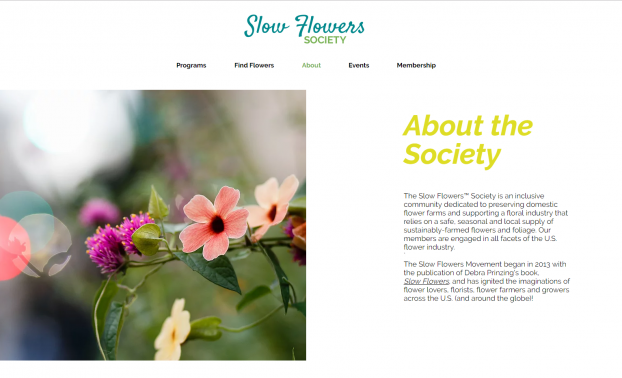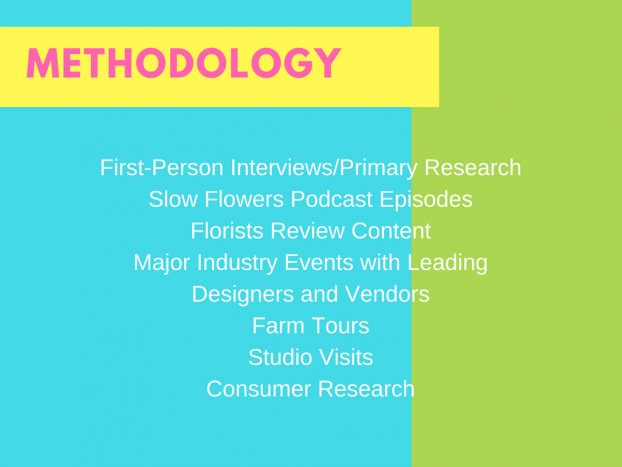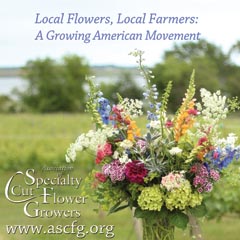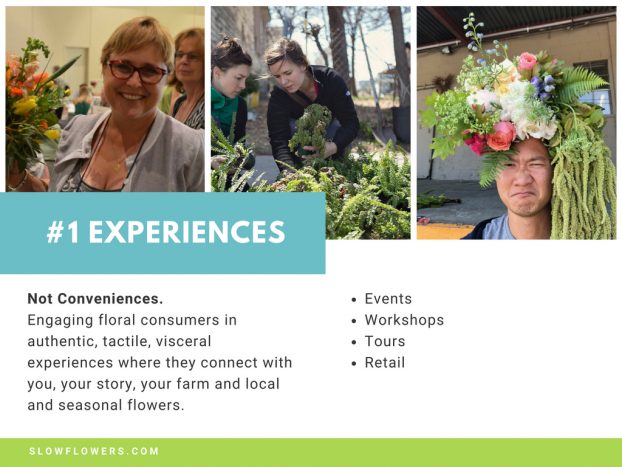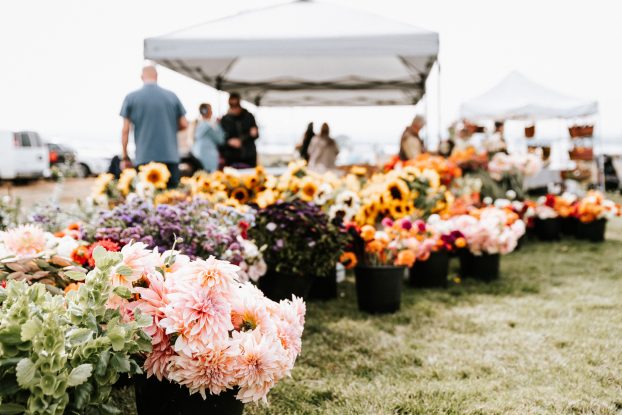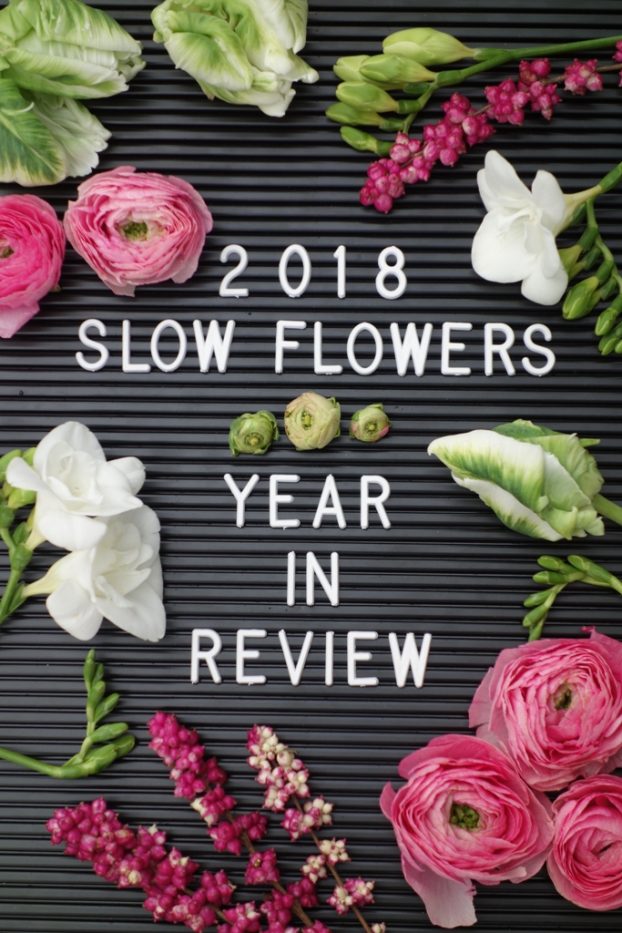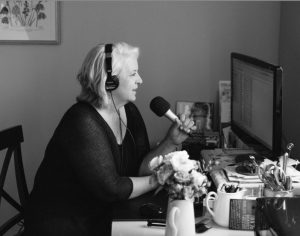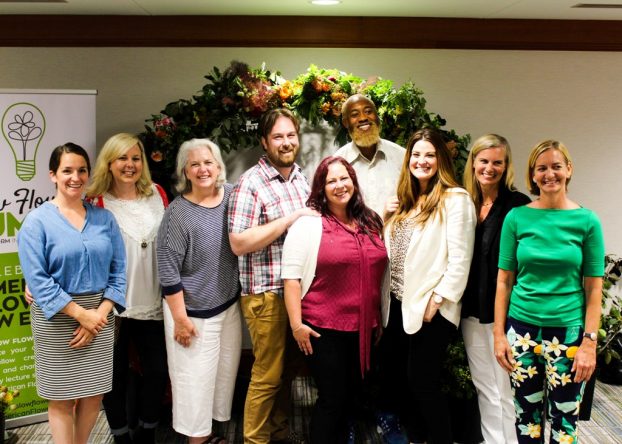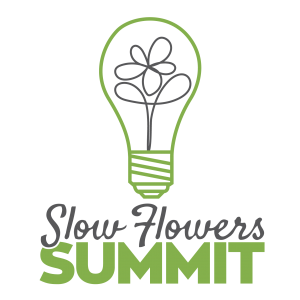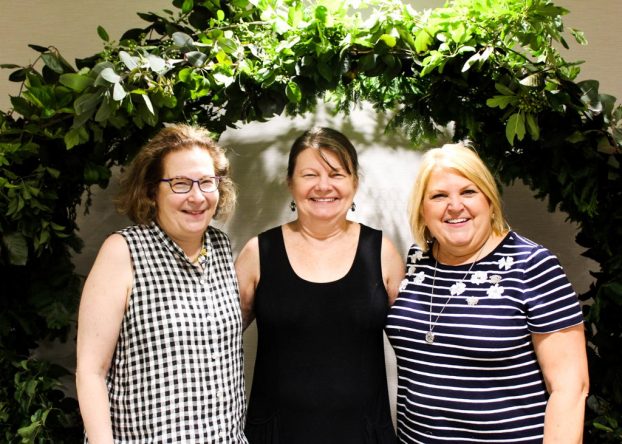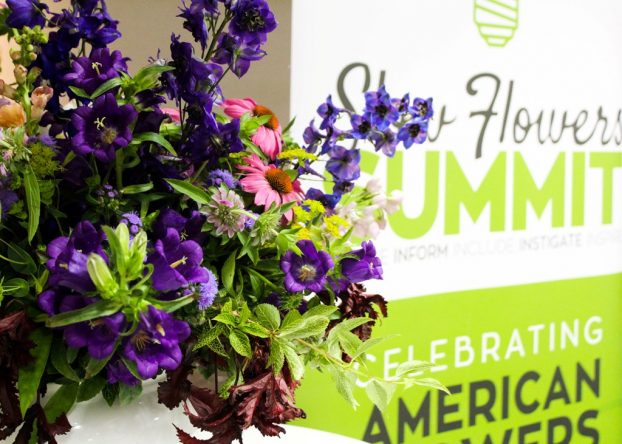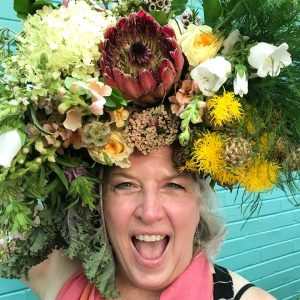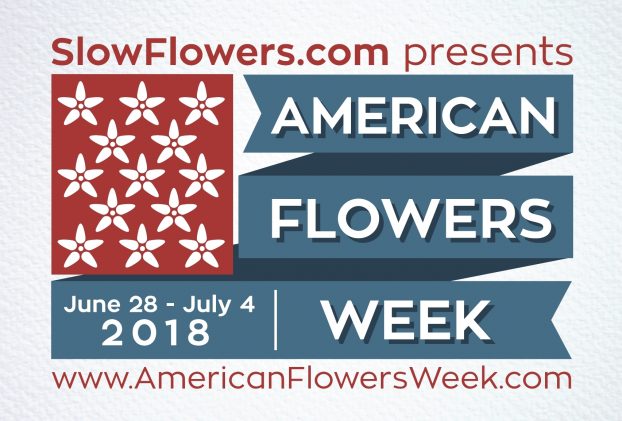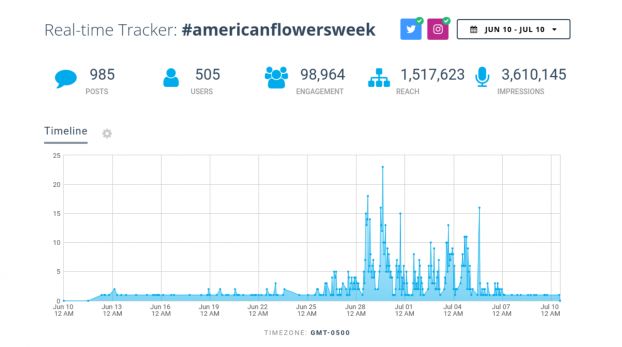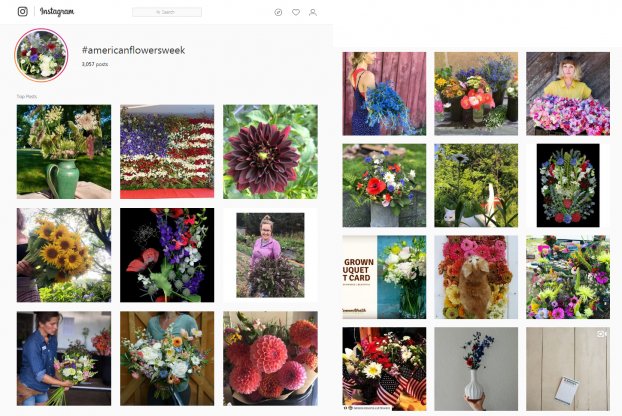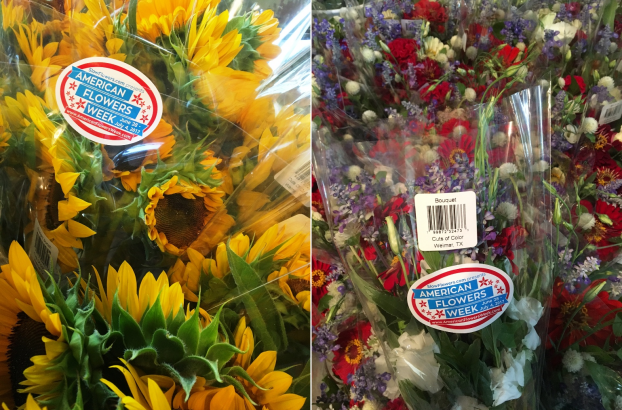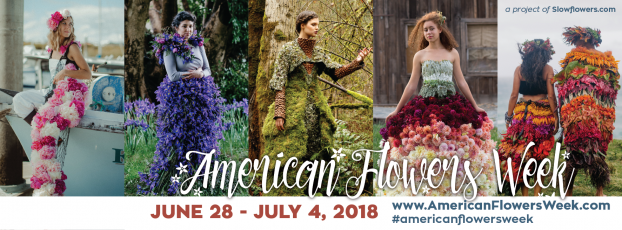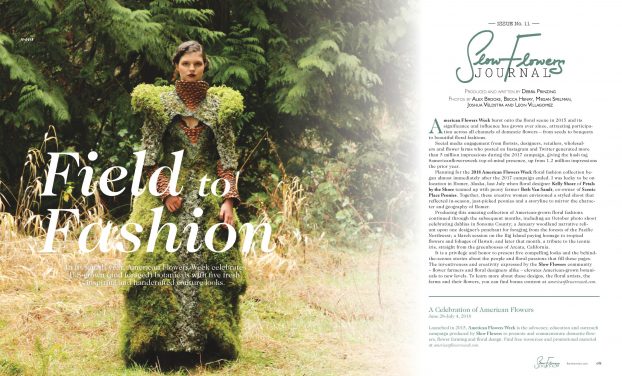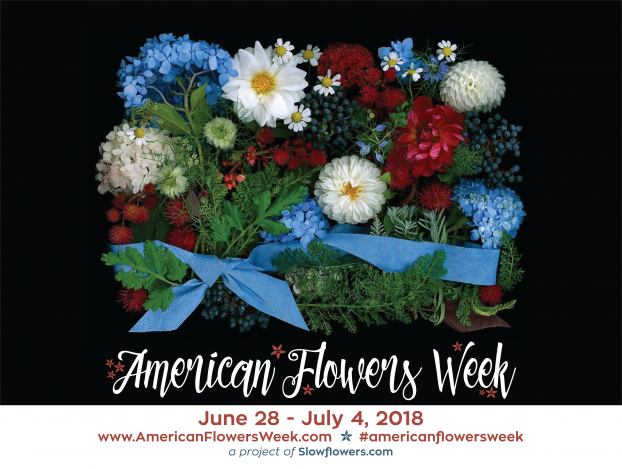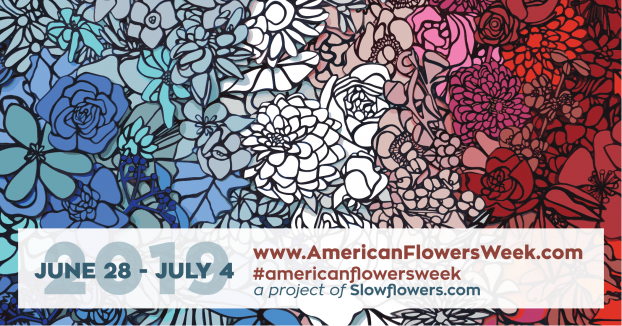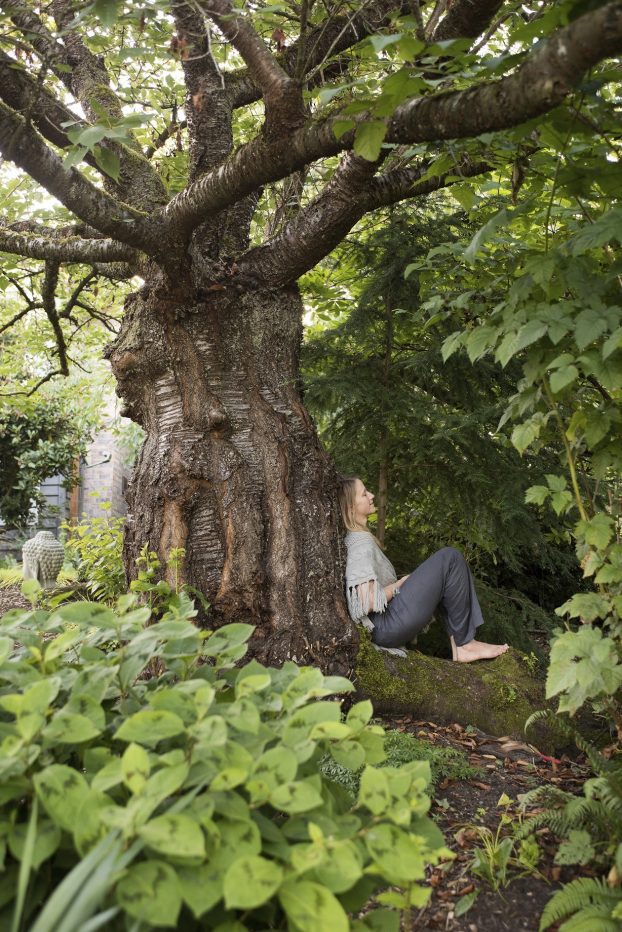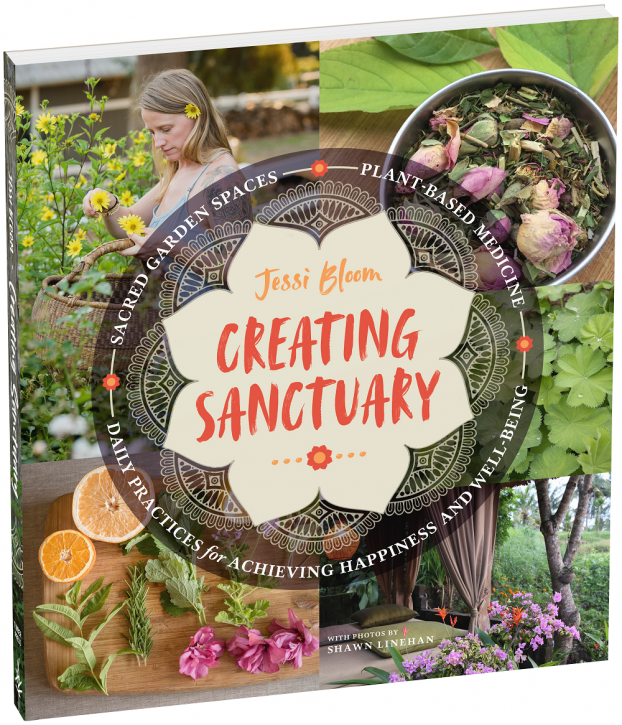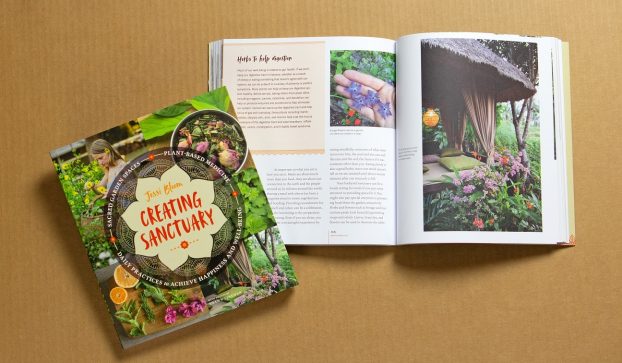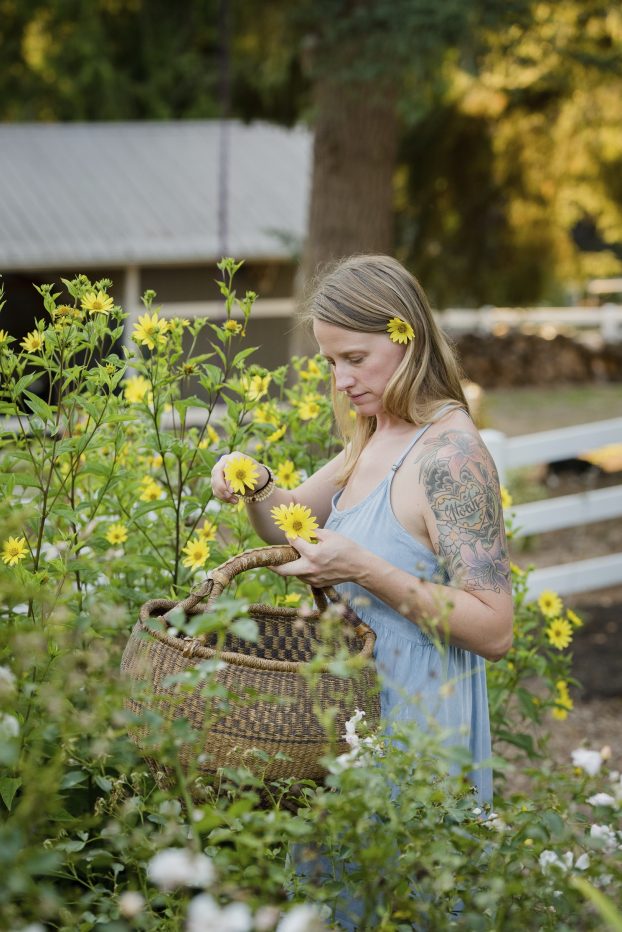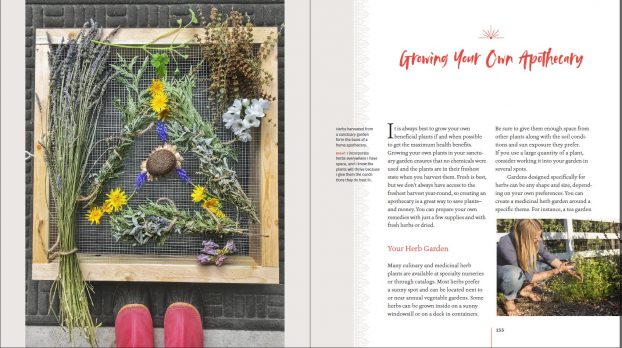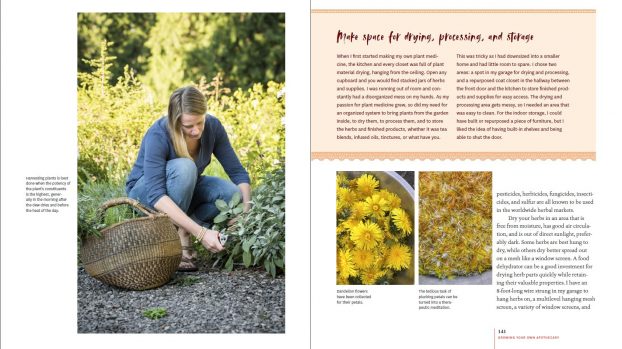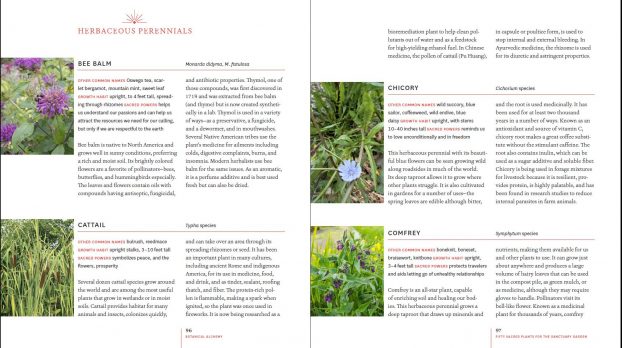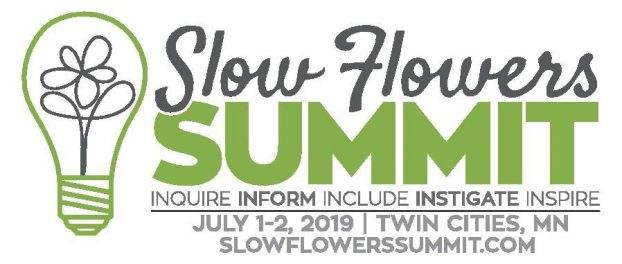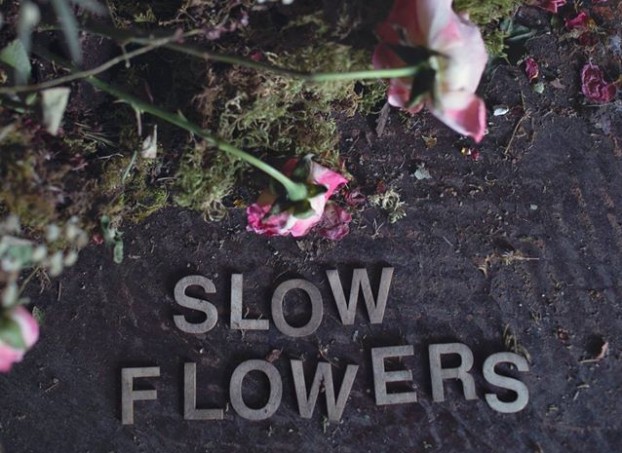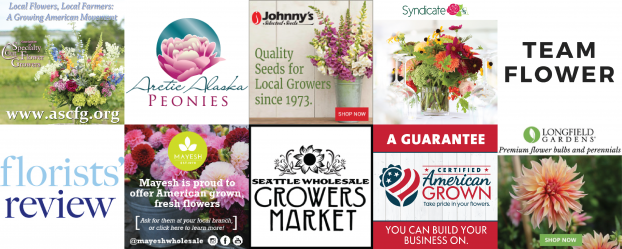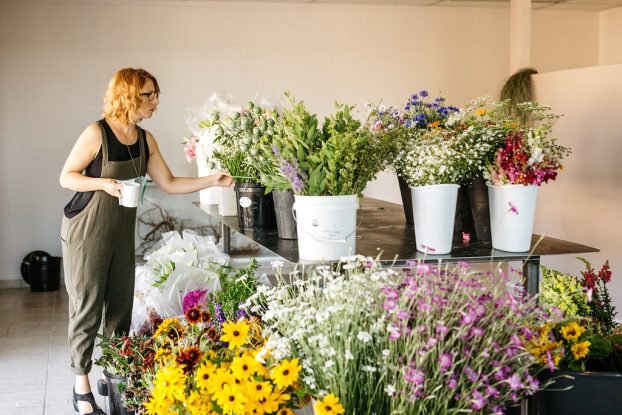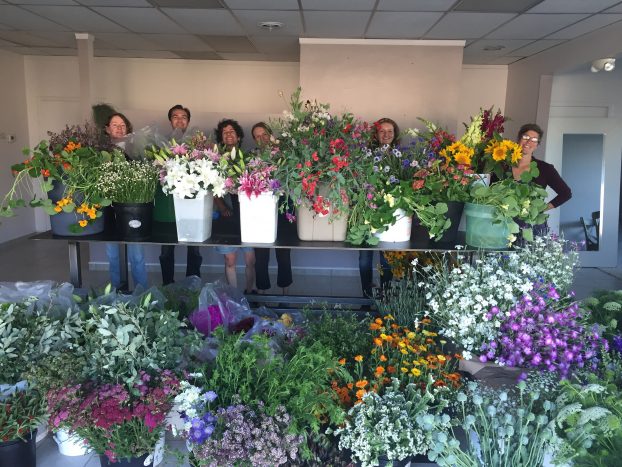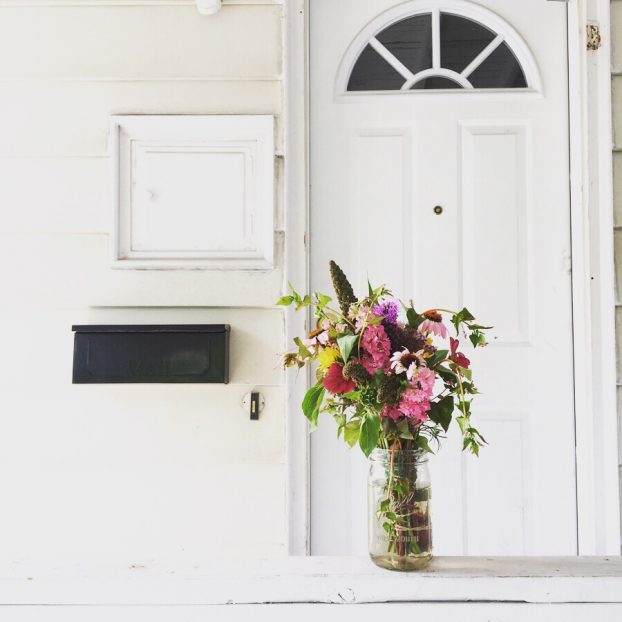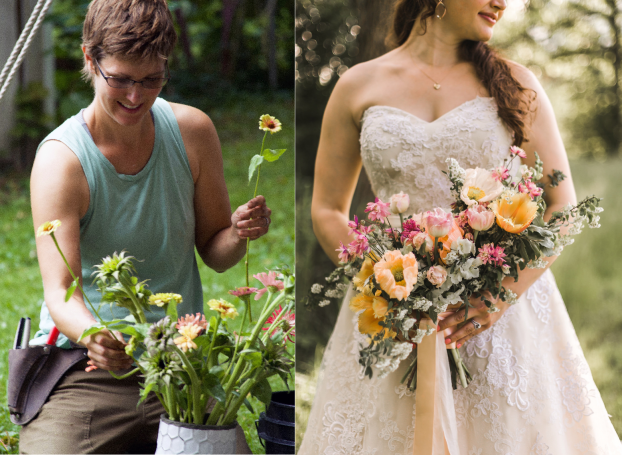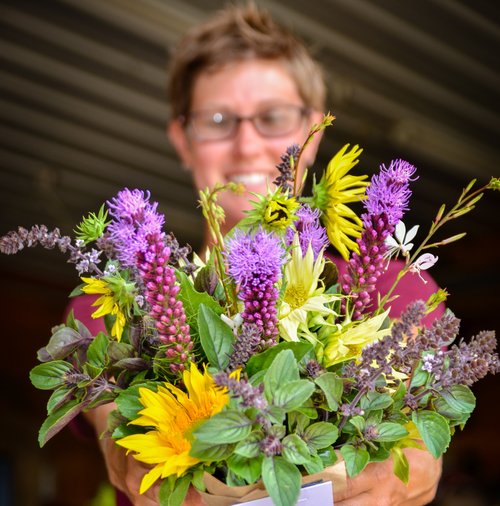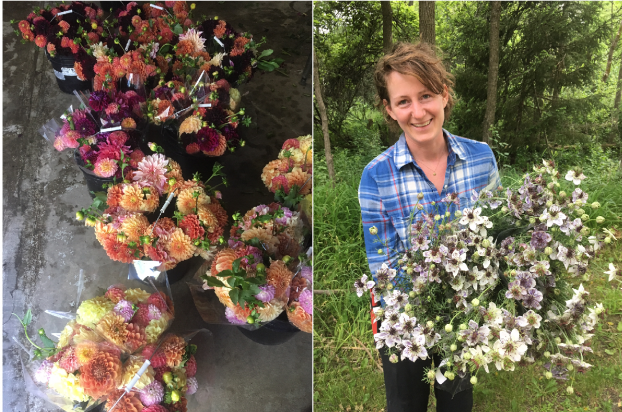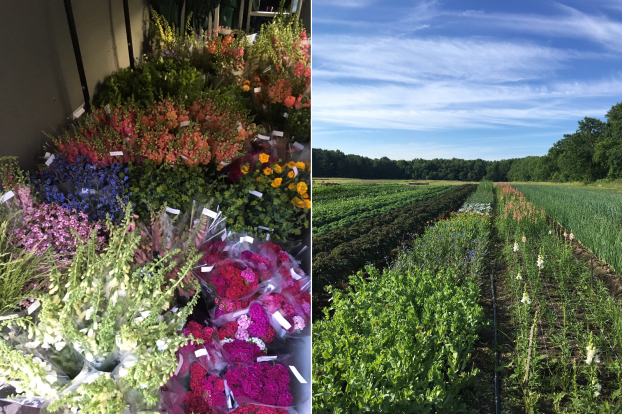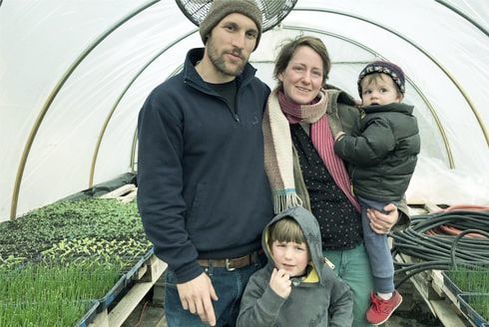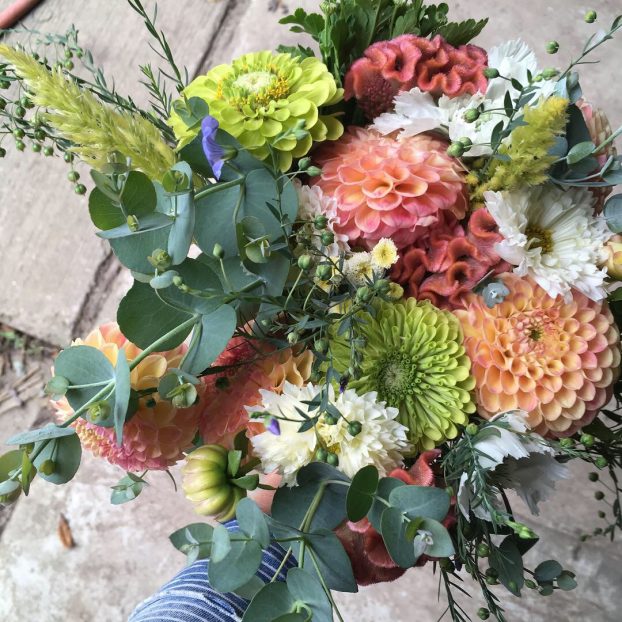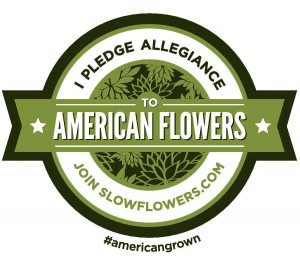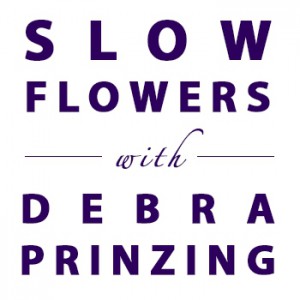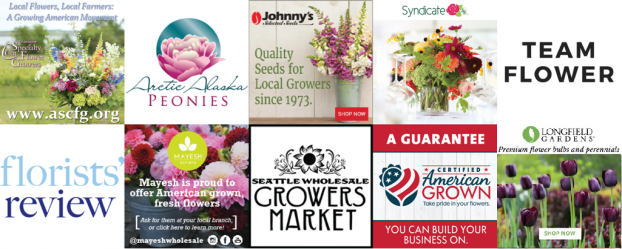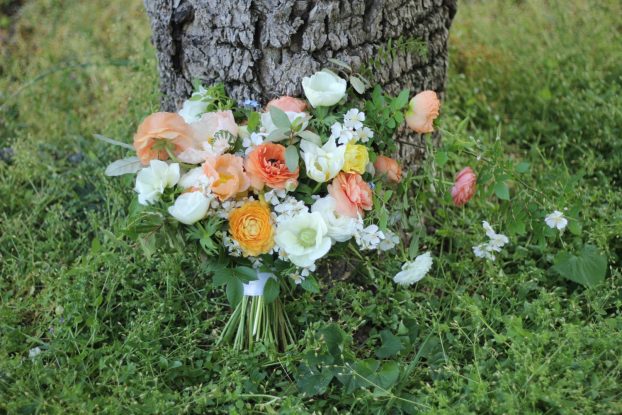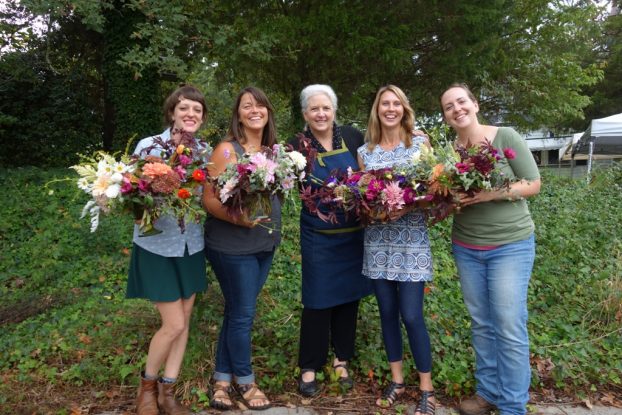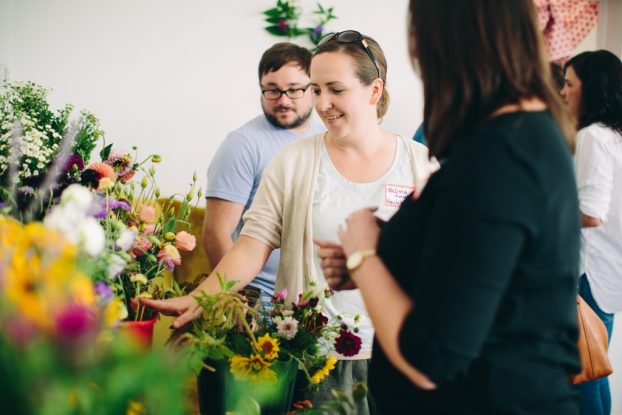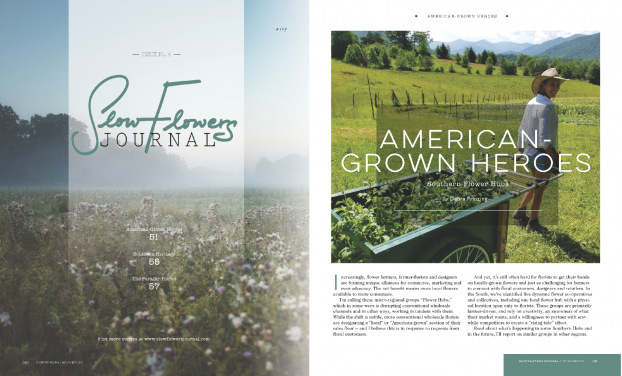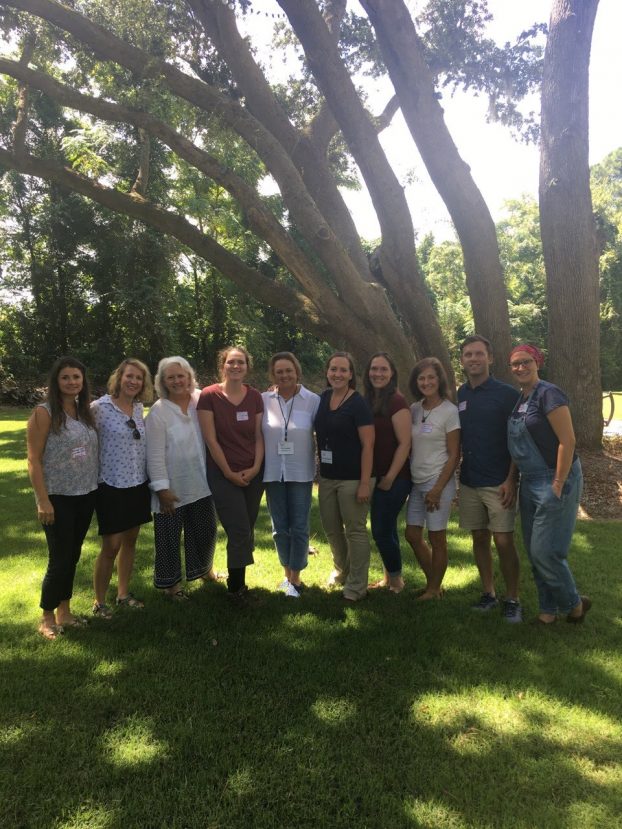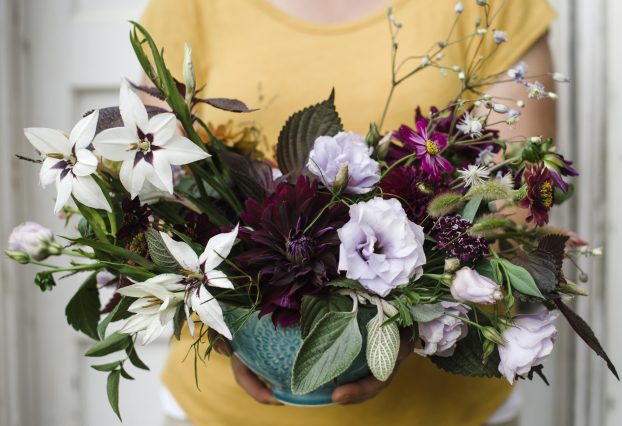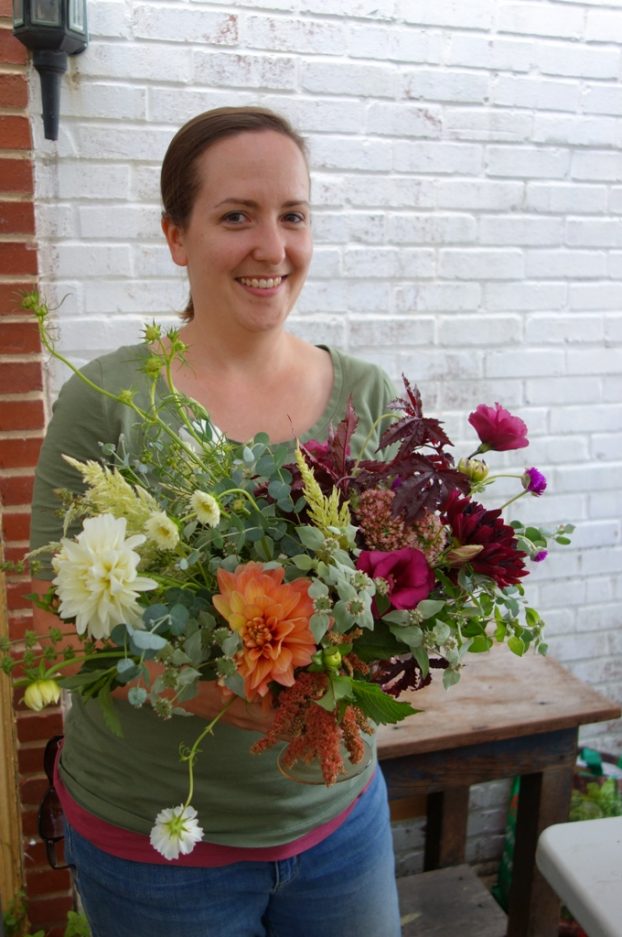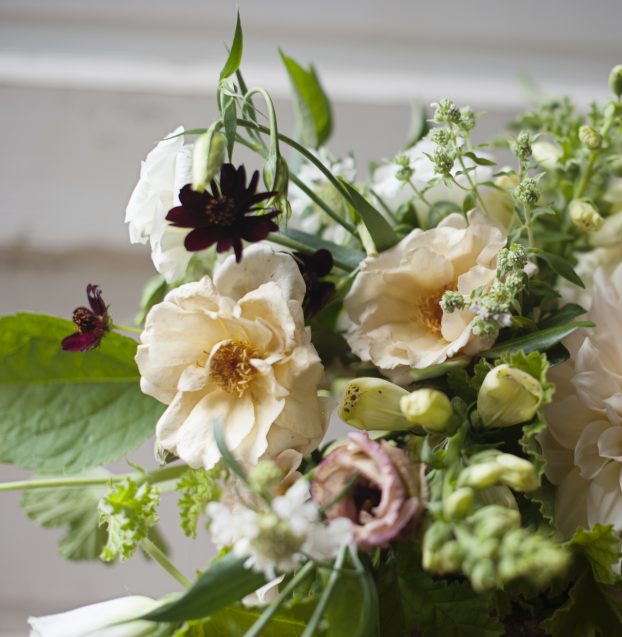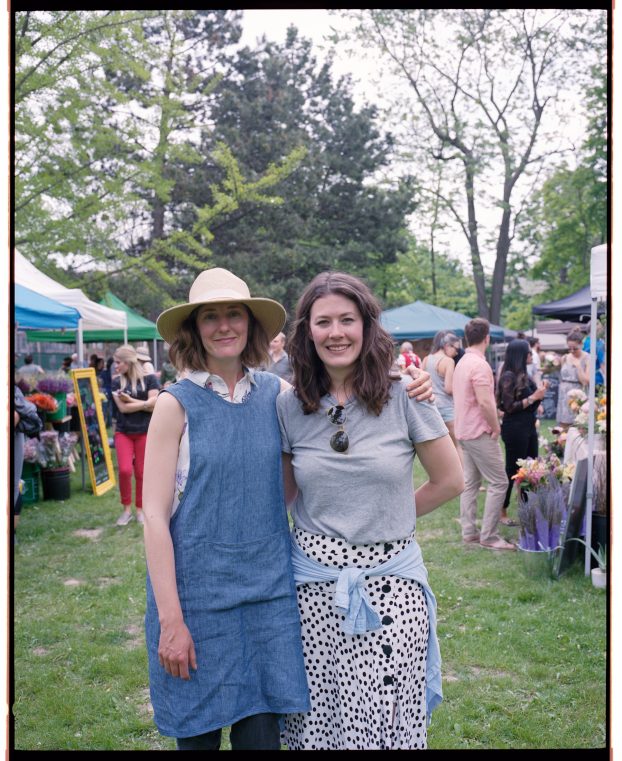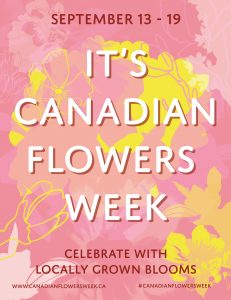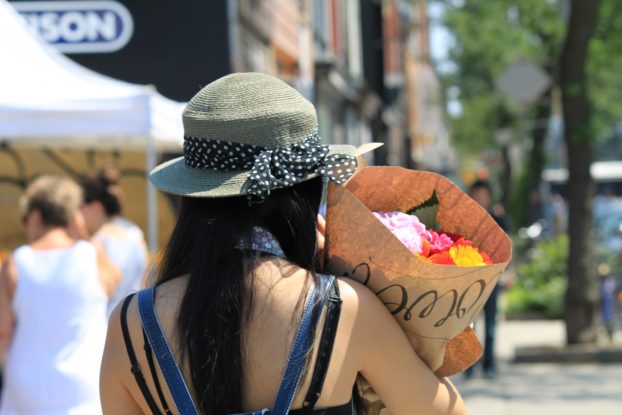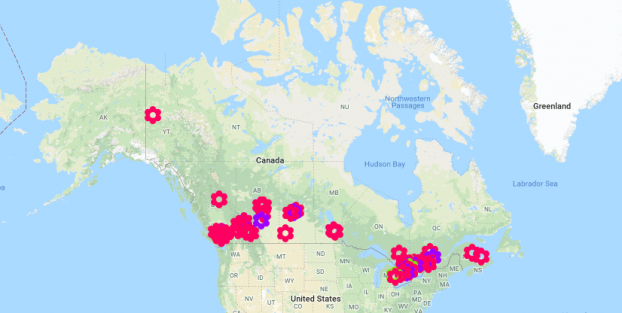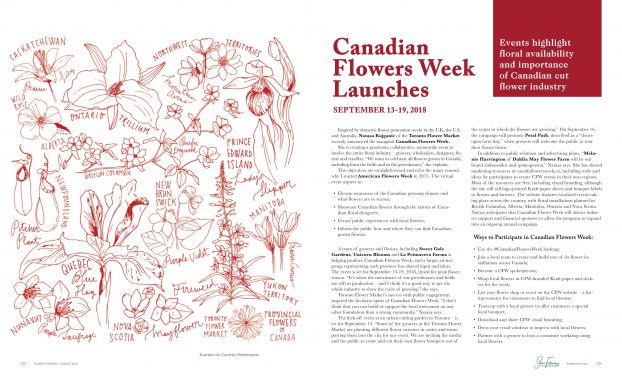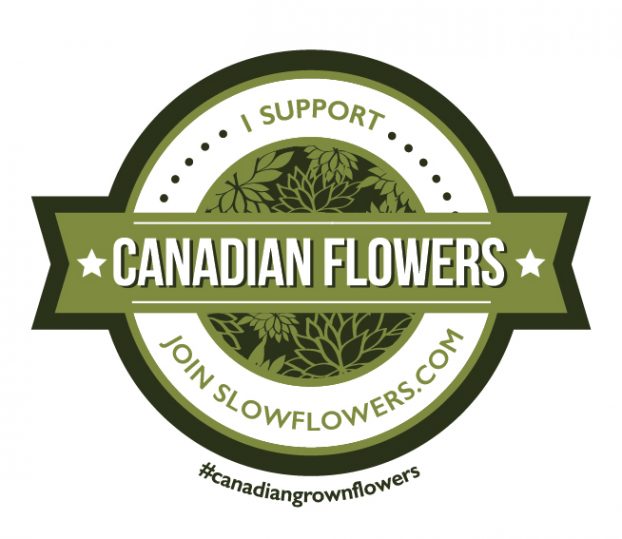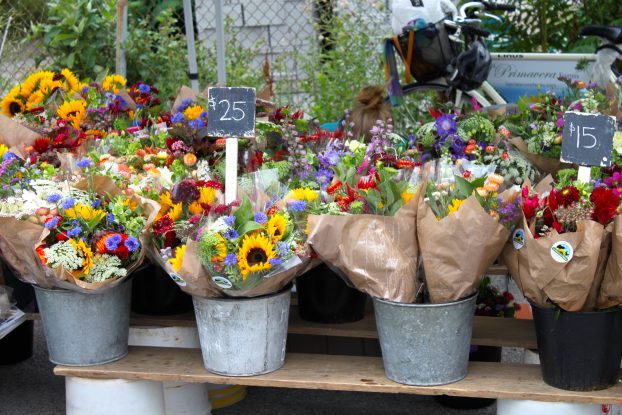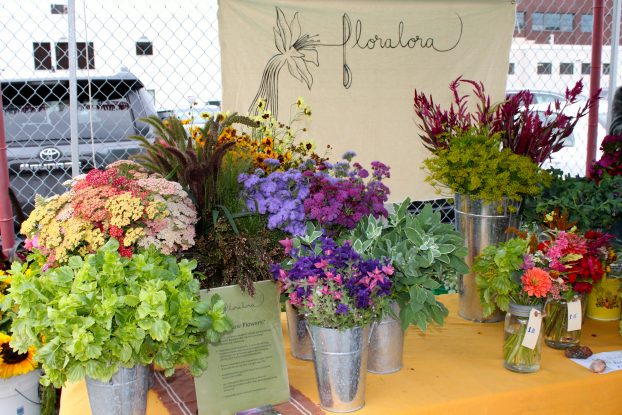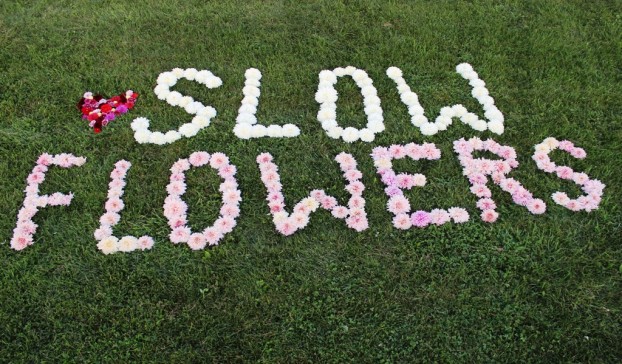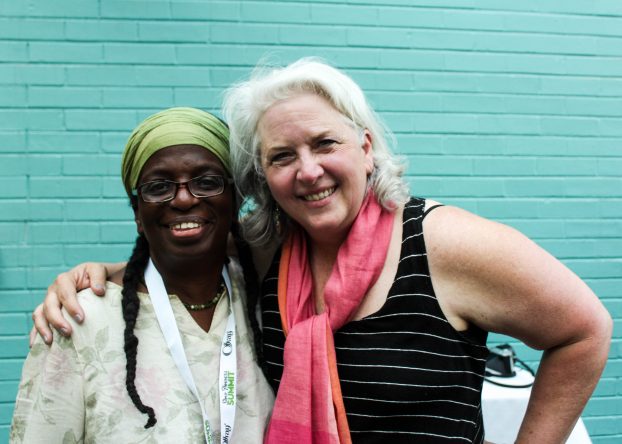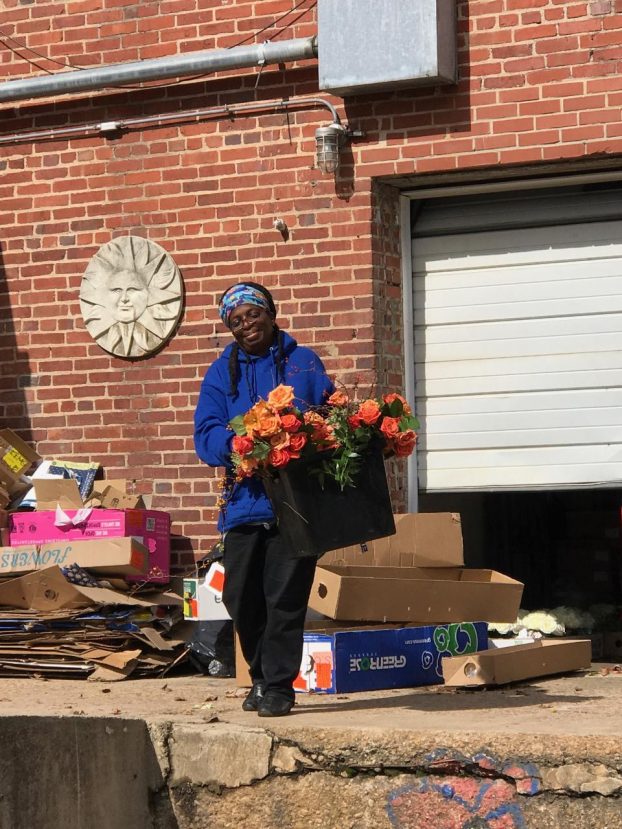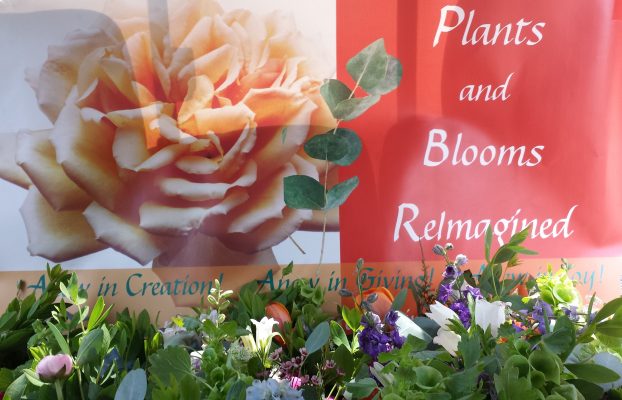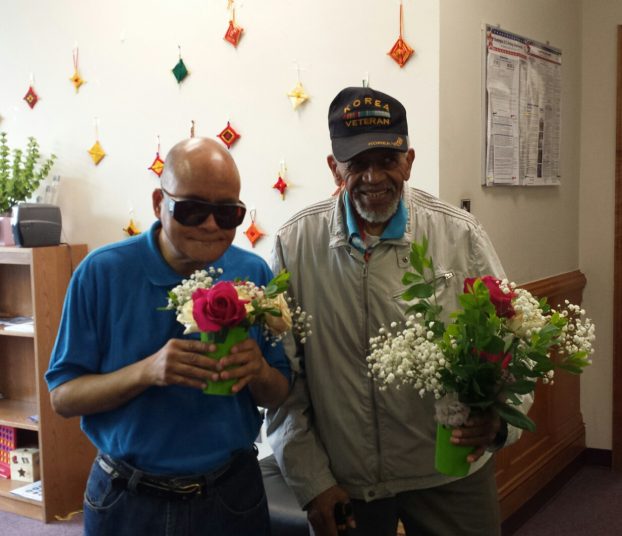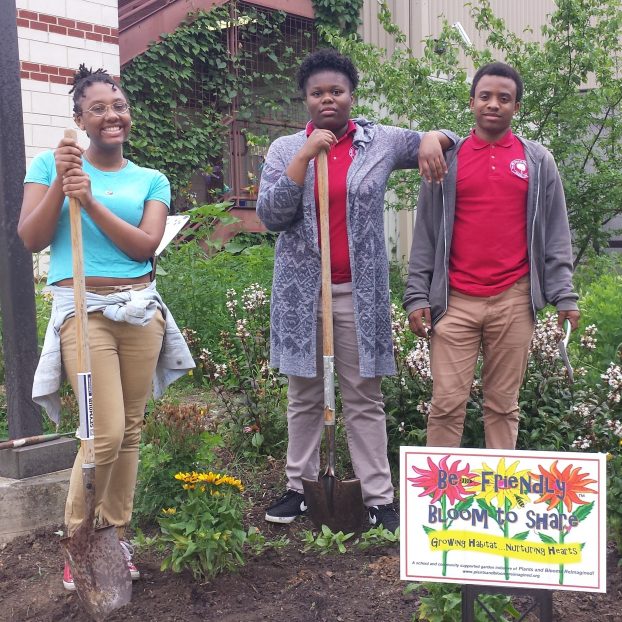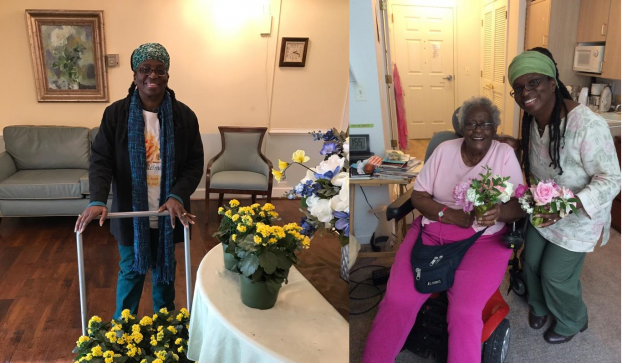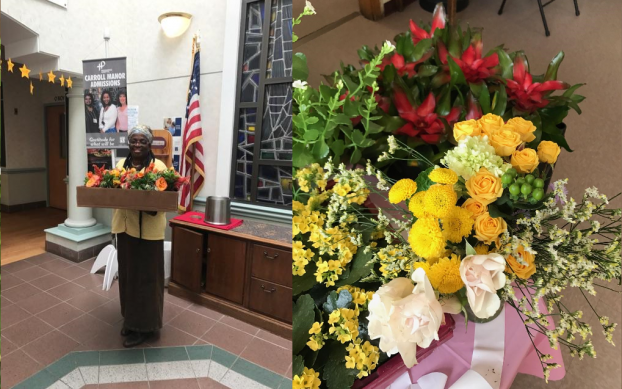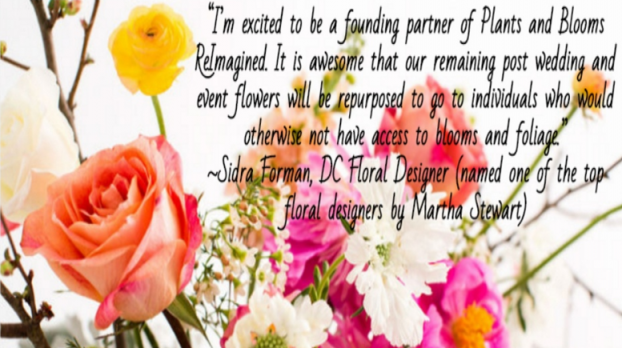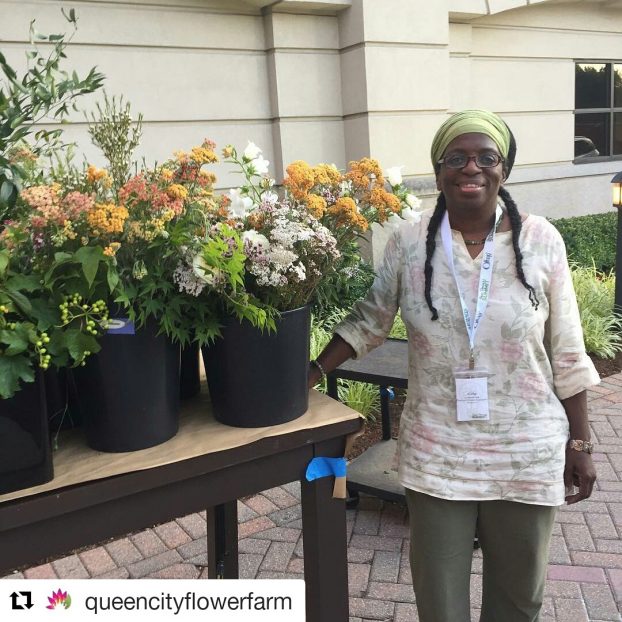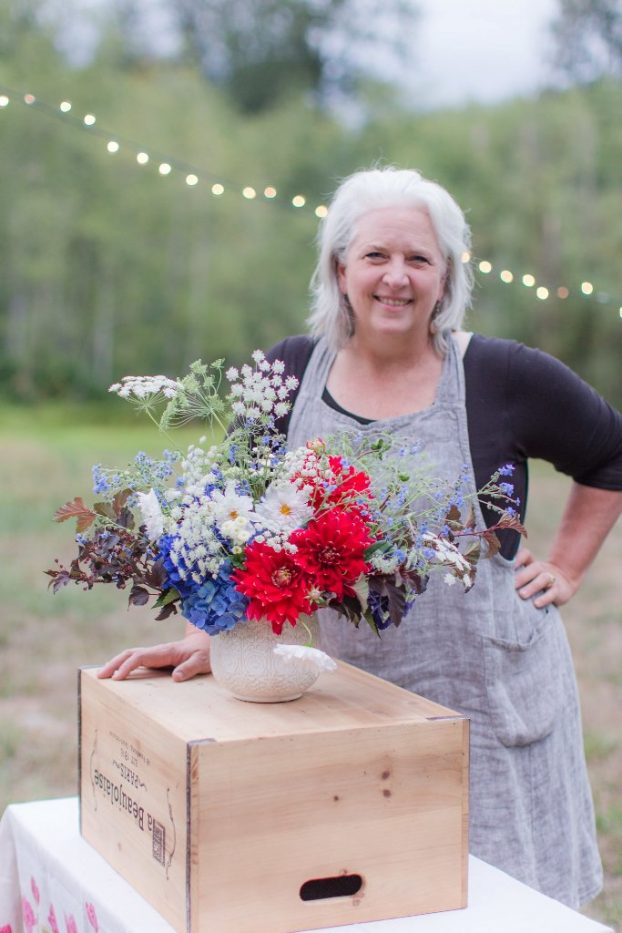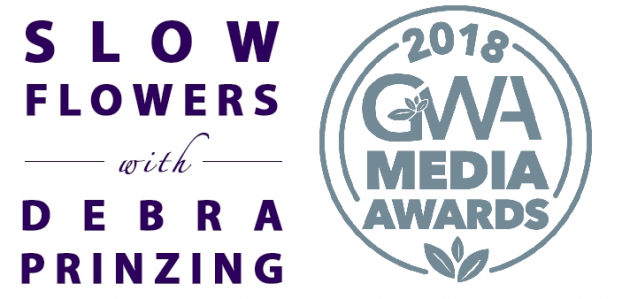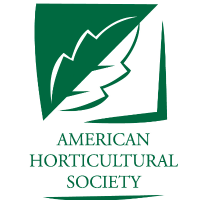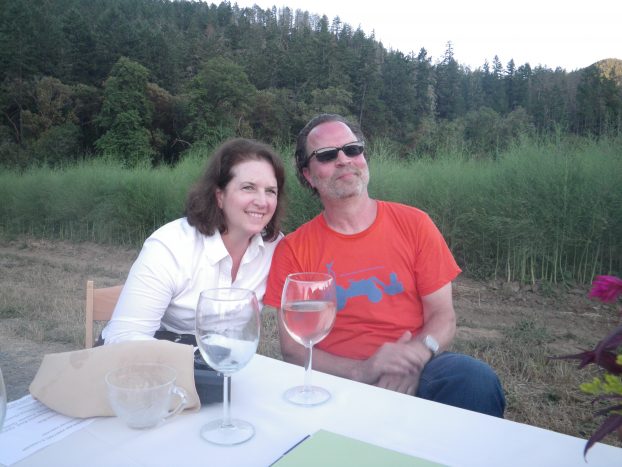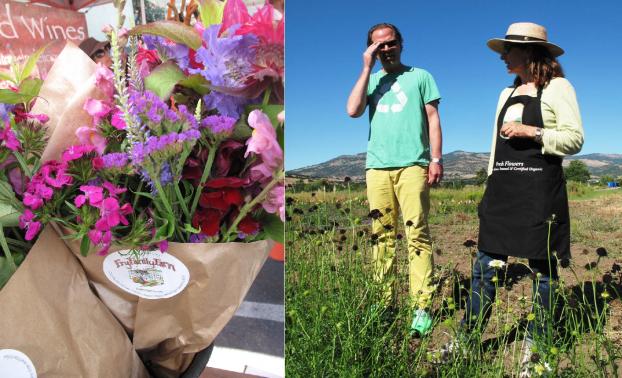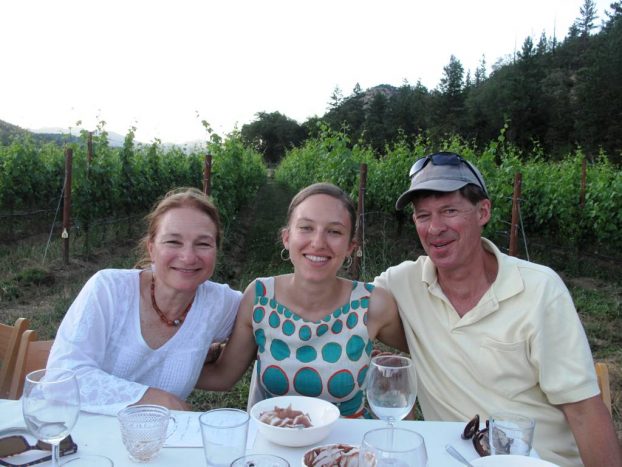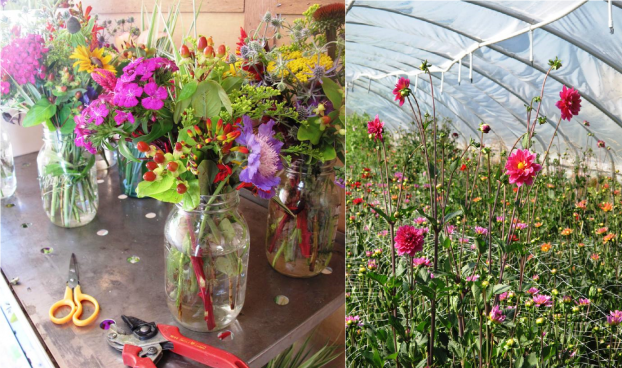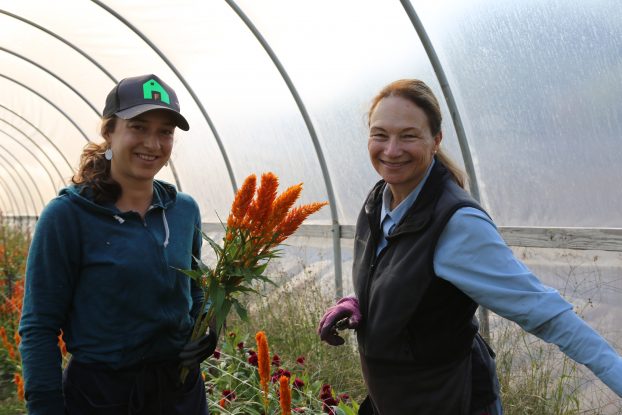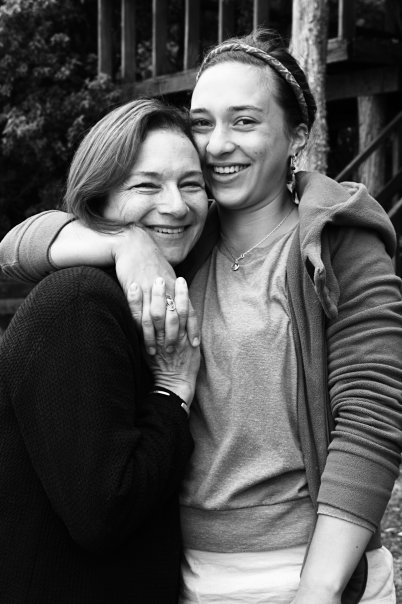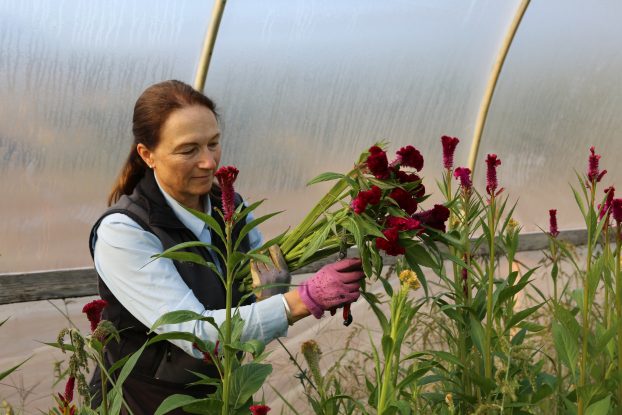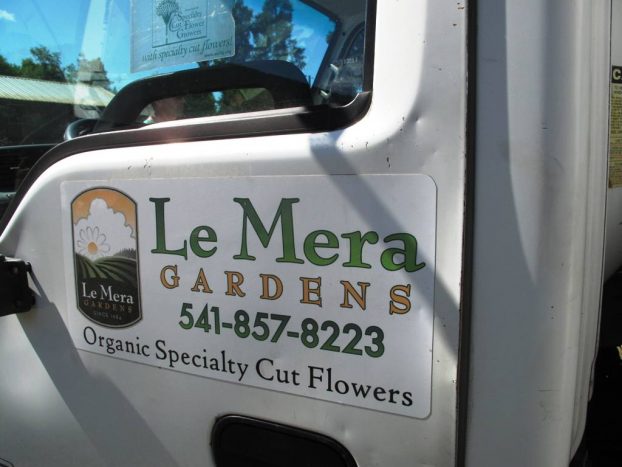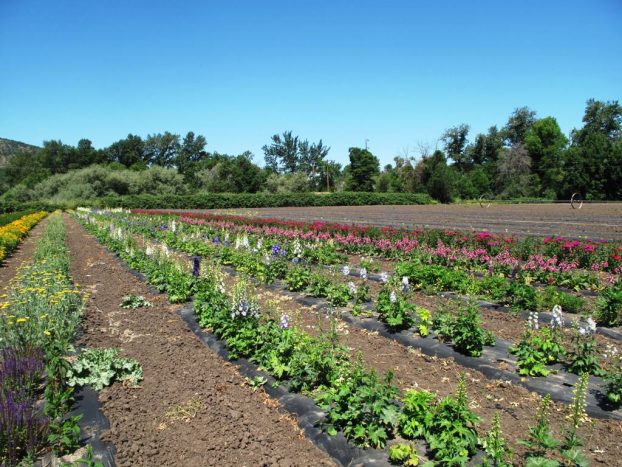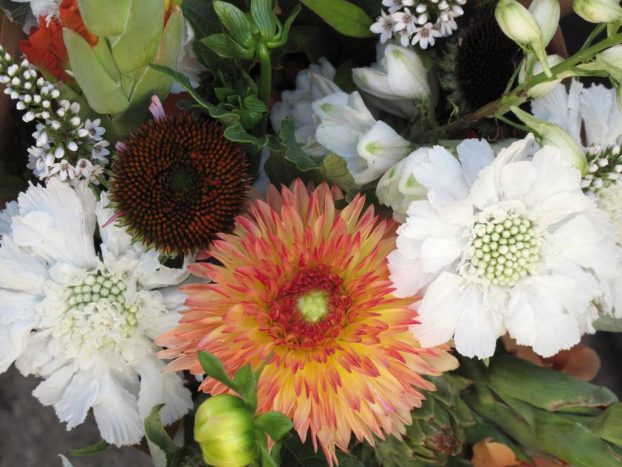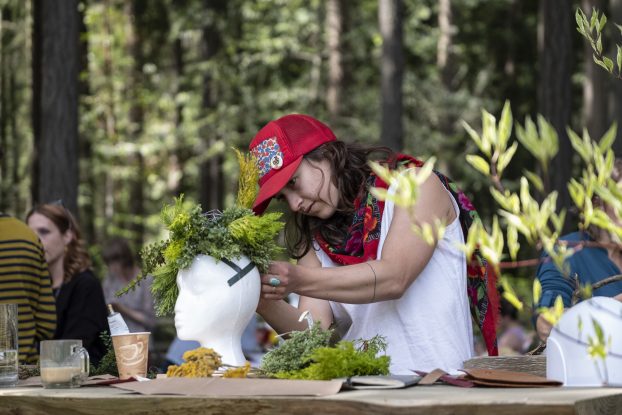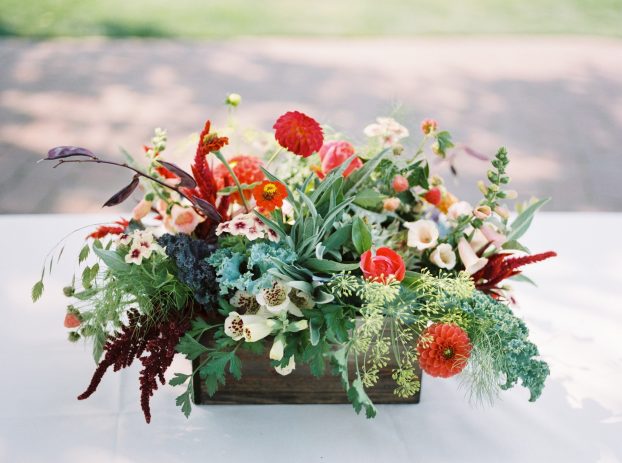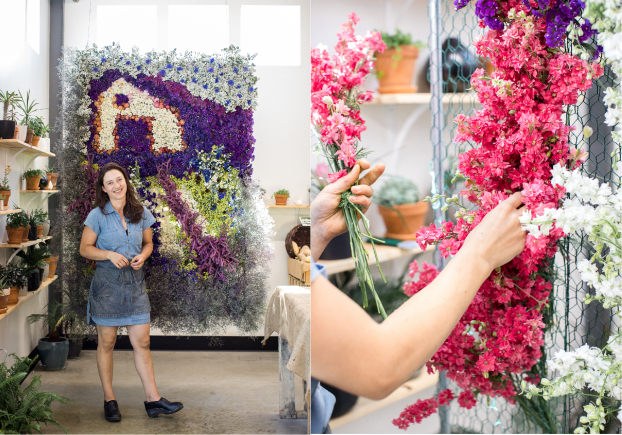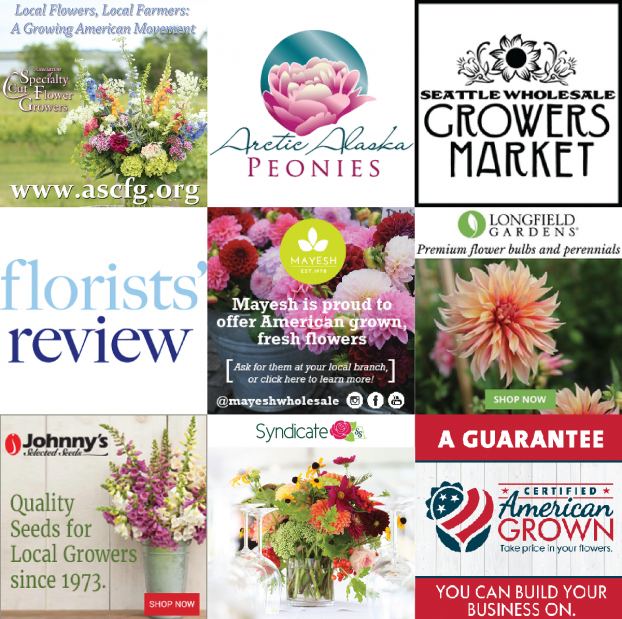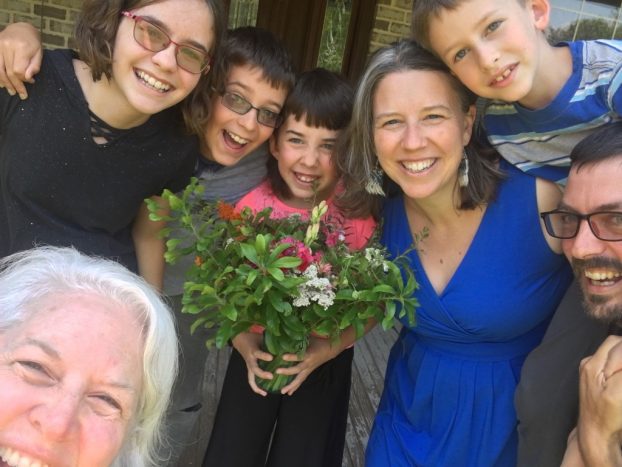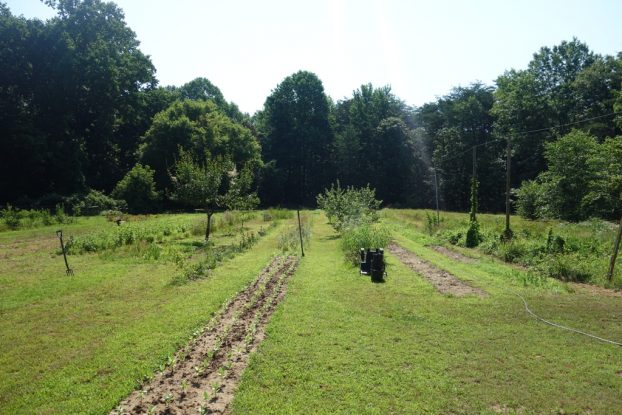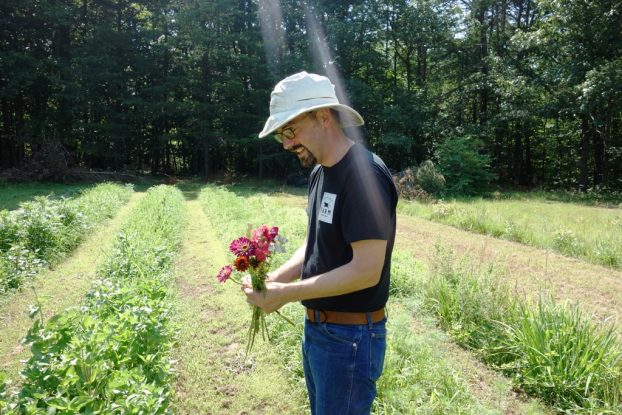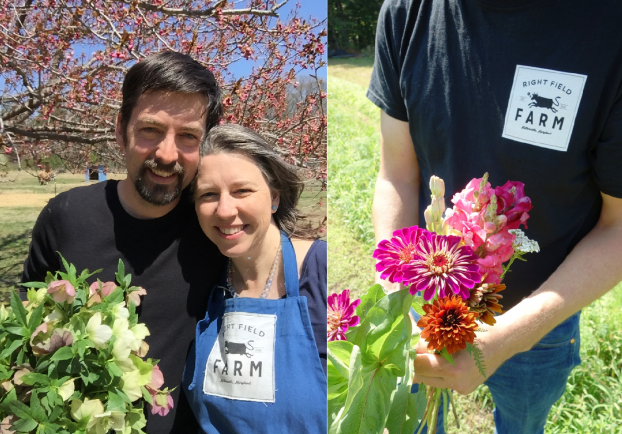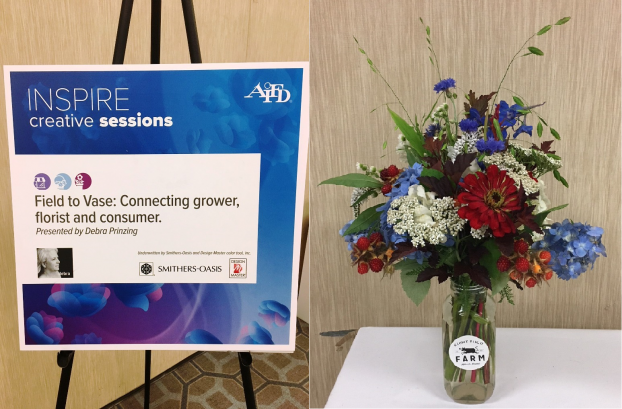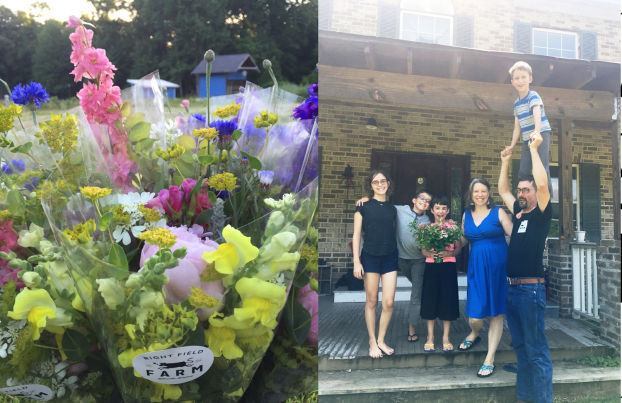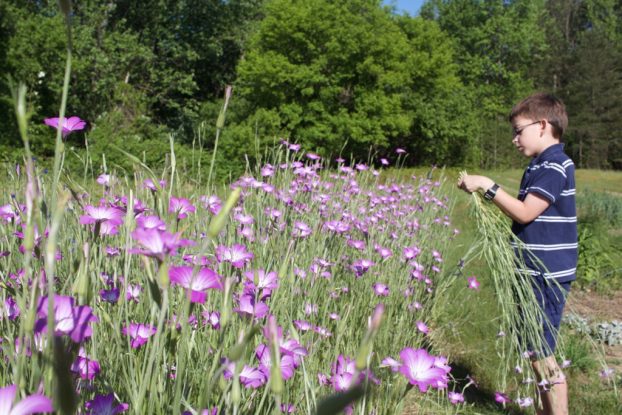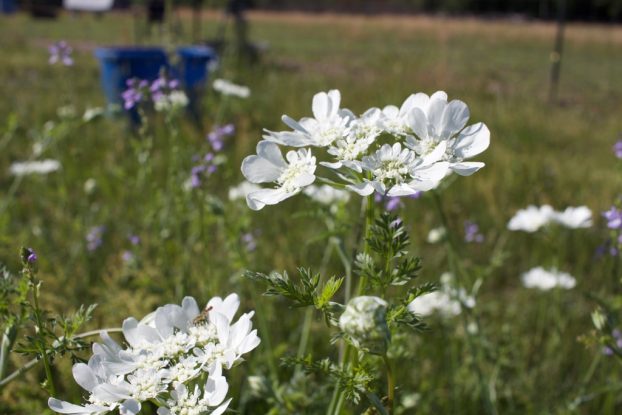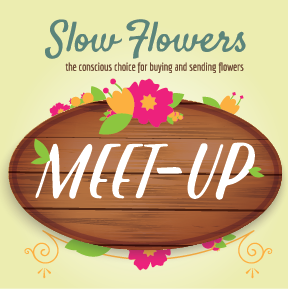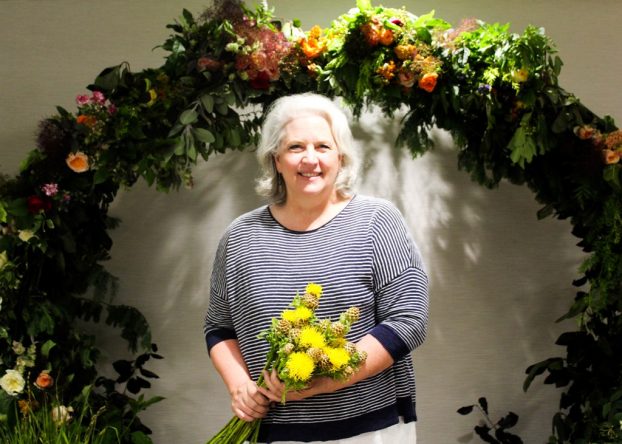
On January 1, 2019, we unveiled our new home on the Web: the Slow Flowers Society. I hope you find it fresh, modern and user-friendly — with easy access to all of our Slow Flowers programs, events and channels in one place.
Why the Society? Our focus hasn’t changed.
In fact, our mission continues. “To change the flower sourcing practices of consumers and professionals through outreach and education that highlights the benefits of local, seasonal and domestic floriculture — and to build a movement that promotes cultivation and sales of those flowers while nurturing authentic connections between consumers, farmers, and florists.”
This change was long in coming. Yet it didn’t happen impetuously or overnight. Coming now, at the start of 2019, allows us to turn the calendar page for a clean re-boot and to bring clarity to the Slow Flowers platform.
I spent much of 2018 pondering this “rebrand.” The word REBRAND was written in all caps with a purple pen on the white board in my office. Looming over me for the entire YEAR!
What’s behind it? With five channels and programs, each of which has its own exclusive web site — sheesh — things were getting a little unruly. Since I wrote the book Slow Flowers, a lot has happened with these two words: Slow. Flowers.
These two words now symbolize an entire movement. A movement that hundreds of thousands of florists, flower farmers, retailers and designers use as short-hand to reflect their belief in local, seasonal and sustainably-grown botanicals.
After the book’s publication, and as it became clear to me that there was an opportunity to position Slow Flowers as an industry standard, new ideas inspired me to bring the following channels and programs to life.
 Here’s the Slow Flowers evolution:
Here’s the Slow Flowers evolution:
February 2013 Publication of Slow Flowers (St. Lynn’s Press)
July 2013 Launch of the Slow Flowers Podcast (debraprinzing.com)
> Benefit: Deepen your knowledge, Hear from Slow Flowers pioneers, Gain critical business insights
May 2014 Launch of Slow Flowers Directory (slowflowers.com)
> Benefit: Affiliate with a consumer-facing brand that’s synonymous with sustainable growing and design practices
April 2015 Received US Patent and Trademark for Slow Flowers™
June 2015 Launch of American Flowers Week (americanflowersweek.com)
> Benefit: Engage with like-minded flower farmers, florists and floral enthusiasts across the country to elevate your flowers
January 2017 Debut of Slow Flowers Journal (slowflowersjournal.com)
> Benefit: Consume engaging, educational and useful articles and interviews from fellow creatives in the Slow Flowers community
June-July 2017 First-ever Slow Flowers Summit (slowflowerssummit.com)
> Benefit: Network and connect in person at this intimate “mind meld” for the Slow Flowers Community, while hearing from inspiring speakers who challenge you to pursue innovation and creativity
August 2017 Print edition of Slow Flowers Journal debuts in Florists’ Review (floristsreview.com)

January 2019 New Web Home for all programs debuts Slow Flowers Society (slowflowerssociety.com)
As you can see, each time the Slow Flowers platform matured and expanded, a corresponding web site emerged. So . . . unifying the brand by pulling everything under one master home on the web makes sense now.
Moving all our fabulous Slow Flowers content to one URL and renaming that portal the Slow Flowers Society is both practical and ambitious.
I dearly want you, and the entire floral marketplace, to value Slow Flowers as a Community, not just a Directory. Does that make sense?
When you join Slow Flowers, you are not “buying a listing on a directory.” No, you are investing in a dynamic branding platform with multiple channels and programs, resources and tools, editorial and promotional opportunities and a community of kindred spirits. Your investment is not merely financial. Like any healthy relationship, it can’t thrive as a one-sided one. You will never be satisfied if you think this is a passive, lead-generating directory like Wedding Wire or the Knot. Slow Flowers is entirely different because your payback comes when you engage, participate and leverage the content and opportunities available to you.
The term “Society” reflects our inclusive community of creatives dedicated to preserving domestic floral farms and supporting safe, seasonal and local supplies of sustainably-farmed flowers and foliage. Our members are engaged in all facets of the U.S. floral industry.
A housekeeping note: All the program web sites will continue to operate with their distinct URLs, and we will support each of them with new content and resources. Over time, the new Society web site will become the gateway that newcomers use to discover and engage with all our programs and the community. Through the Society site, users will read about each channel, including the Directory, and link to each program’s web site.
Here are a few FAQs:
What
The Slow Flowers™ Society is an inclusive community dedicated to the promotion of domestically-grown flowers and benefits of local, seasonal and sustainable sourcing. Our members are engaged in all facets of the U.S. and Canadian flower industry.
Why
The Slow Flowers Movement is a response to the disconnect between humans and flowers in the modern era. It aspires to reclaim the act of flower growing, recognizing it as a relevant and respected branch of domestic agriculture. Further, Slow Flowers connects flower consumers with the source of their flowers. When there is transparent origin labeling of all botanicals sold to consumers and professional florists, it heightens the value of local, seasonal and sustainably-grown flowers.
>Read the Slow Flowers Manifesto
How
In a marketplace filled with imported flowers, the Slow Flowers Society provides the platform and resources to differentiate your floral business. Through networking and brand affiliation, we support and equip growers, designers, wholesalers, retailers, educators, members of the media and floral enthusiasts with editorial content, publicity campaigns and professional events. We give members valuable and credible tools to communicate a sustainably-minded floral ethos.
>Learn more about the Values and Benefits of Membership
Cost: There are four levels of membership
Enthusiasts: $35 annual
Members who value and support the Slow Flowers Movement and who enjoy our ongoing Resources, Inspiring How-To’s and Featured Content.
Professionals: $50 annual (Standard) or $200 annual (Premium)
Join 700+ members and enjoy access to our Branding Tools, Vendor Network, Directory, Resources, Marketplace and Featured Content. Premium-level professional members receive a number of enhanced benefits.
International Affiliates: $500
In recognition of the parallels between the U.S. and Canadian floral marketplace and other countries, Slow Flowers International invites your affiliation.
JOIN THE SOCIETY and BRAND YOUR FLORAL BUSINESS
WITH A CREDIBLE NARRATIVE AND CONSCIOUS VALUES









